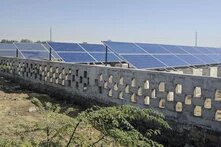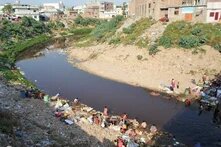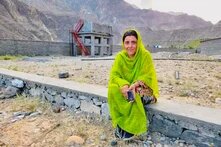
In Pakistan, democratic space has been shrinking under stress from a blend of state and non-state forces, notably repressive legal frameworks introduced under the realm of Financial Action Task Force (FATF) and the state’s unwillingness to realize the exercise of civil and political freedoms. Traditional media is controlled and practicing partisan journalism, dissenting voices are under threat, while the new regulations for controlling online spaces are being considered.
The FATF placed Pakistan on grey list, an enhanced monitoring process. Pakistan was handed over a 10-point action plan – calling upon the state to introduce stringent financial mechanisms, procedures and plans to stop money laundering and financing for terrorism. National Counter-Terrorism Authority (NACTA) without consulting civil society in Pakistan, introduced several measures. These include re-registration of INGOs under INGO Policy 2015, and for local NGOs signing MoUs with Economic Affairs Division (EAD), and re-registration with the Provincial Charity Authorities/Commission. The scrutiny and monitoring of NGOs/INGOs through law enforcement agencies have increased resulting in harassment and intimidations.
In recent years, atmosphere has become even more challenging. Also, a narrative is being promoted by a group of media and a certain mind-set. The dangerous trend is the propagation of the narrative that the civil society and particularly rights-based organizations are the agents of the West and India, receiving foreign funds and operating against “national interests”.
In February 2019, the Pakistani government rejected registration applications of 42 NGOs that sought to sign Memoranda of Understanding (MoUs) with the EAD. In August 2015, the Securities and Exchange Commission of Pakistan (SECP) cancelled the registration of 23 INGOs in a countrywide crackdown against NGOs and INGOs and the Ministry of Interior ordered Save the Children to shut down its operations. The government also turned down the registration requests of 9 INGOs. A controversial draft legislation, the Foreign Contribution Act 2014, is still under consideration with the stated goal of streamlining foreign funding and functioning of civil society organizations in Pakistan.
In 2015, Balochistan government de-registered all NGOs in the province. In 2017, Punjab government de-registered 3,773 out of nearly 9000 active NGOs and issued the directives to re-register under the Punjab Charity Act 2018 with Punjab Charity Commission.
All these actions have led to cessation of bank accounts of the NGOs/NPOs, whose registration applications are either still in progress or pending for approval. Additionally, the Federal Board of Revenue (FBR), in collaboration with Pakistan Center for Philanthropy (PCP), has increased its oversight of the NGOs/INGOs for possible involvement in money laundering or terror financing. The National Accountability Bureau (NAB) has also been investigating the sources and use of NGO funds. In 2020, NAB forwarded the inquiries against NGOs, including Sustainable Development Policy Institute (SDPI) and FAFEN, for further legal proceedings to the Ministry of Interior. It also sent its inquiry against officials of the Fata Rural Programme Project to the relevant department for action.
Repressive policies and arbitrary actions to silent dissent are not limited to CBOs, NGOs and INGOs. Pakistani media, since its liberalization in 2001-02, has consistently come under threat for its criticism on the state’s policies, particularly national security, bad governance and systemic issues such as corruption. Under Section 37(1) of the PECA in October 2021 all social media companies are bound to follow the commands of the government in relation to removing and blocking of objectionable content and sharing of private data of social media users. Pakistan is on the list of top dangerous countries in the world for journalists.
It is vital that the government respects and understands civil society's capacity, and supports a culture of assistance and trust rather than hindrance and hostility. Political developments, globally and nationally, want the state to support an inclusive democratic space where people can actively engage in political processes and contribute to the country's social, economic, and political uplift.



